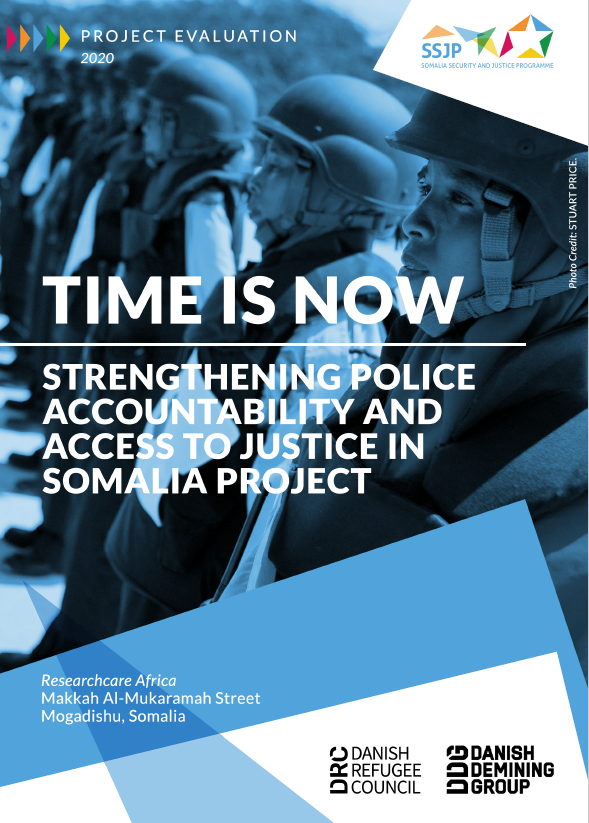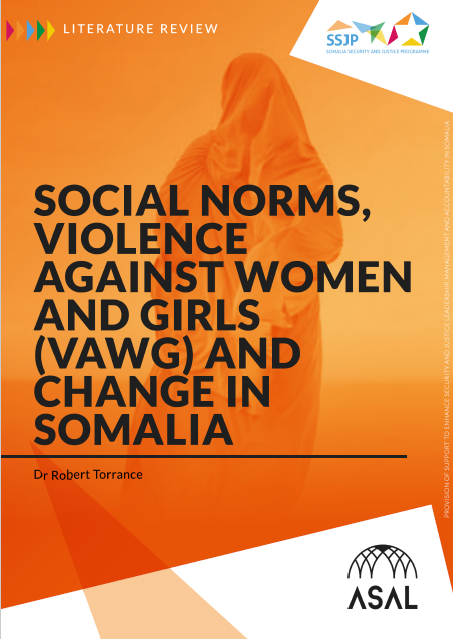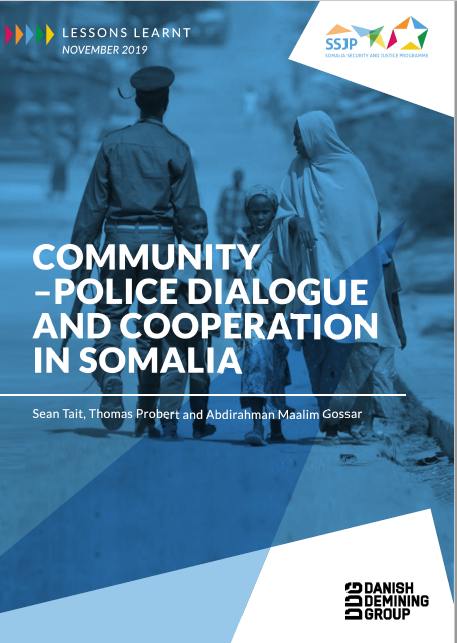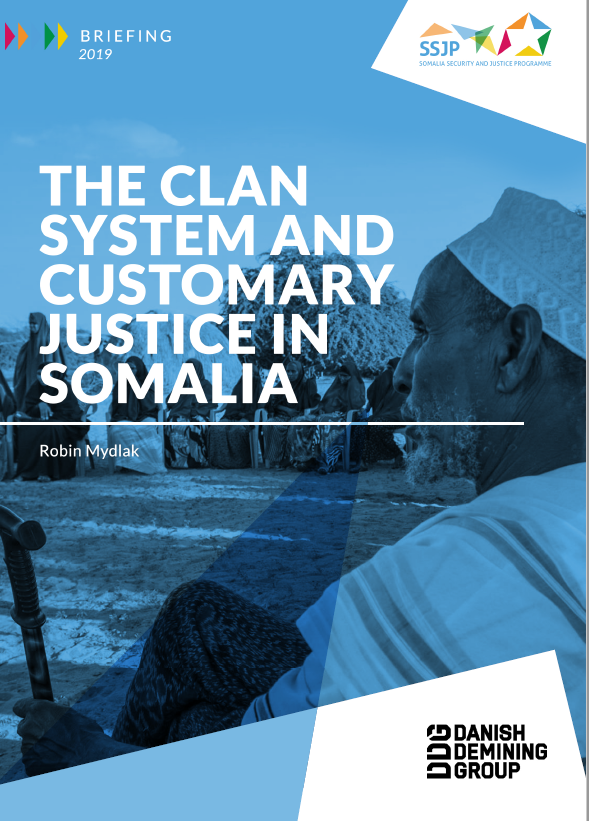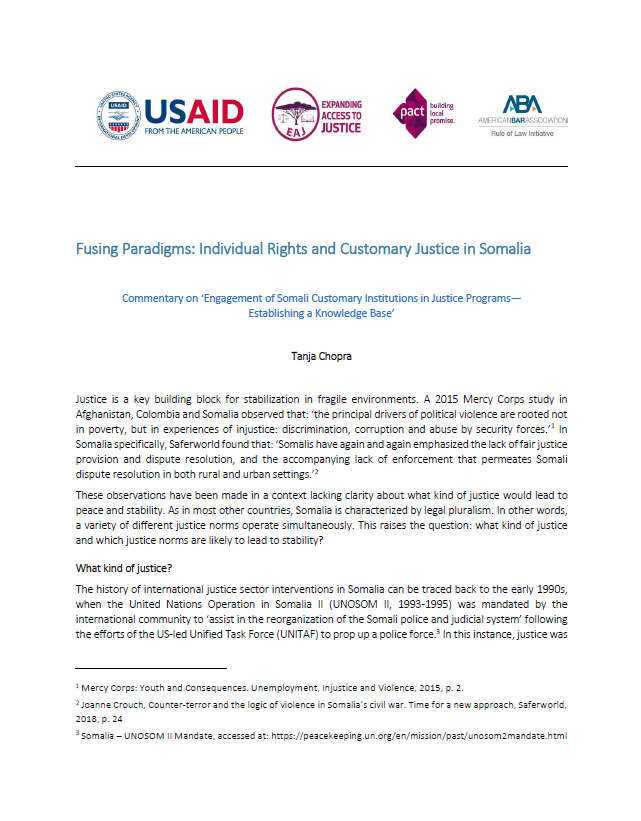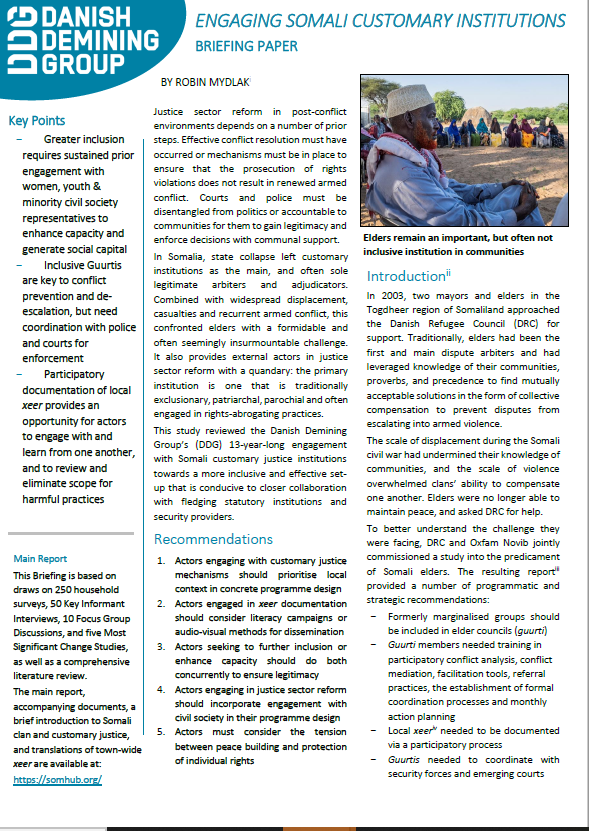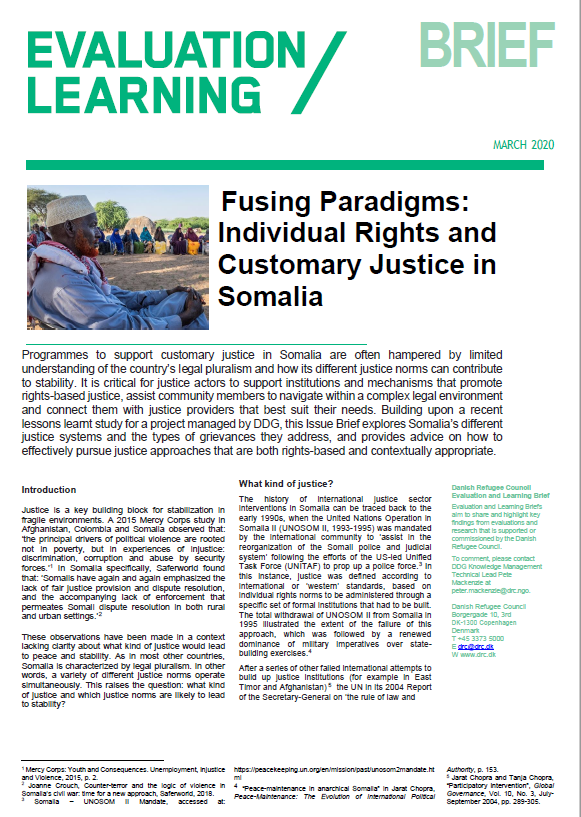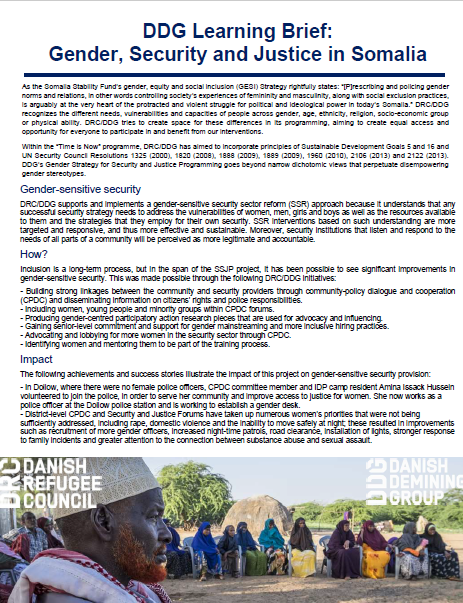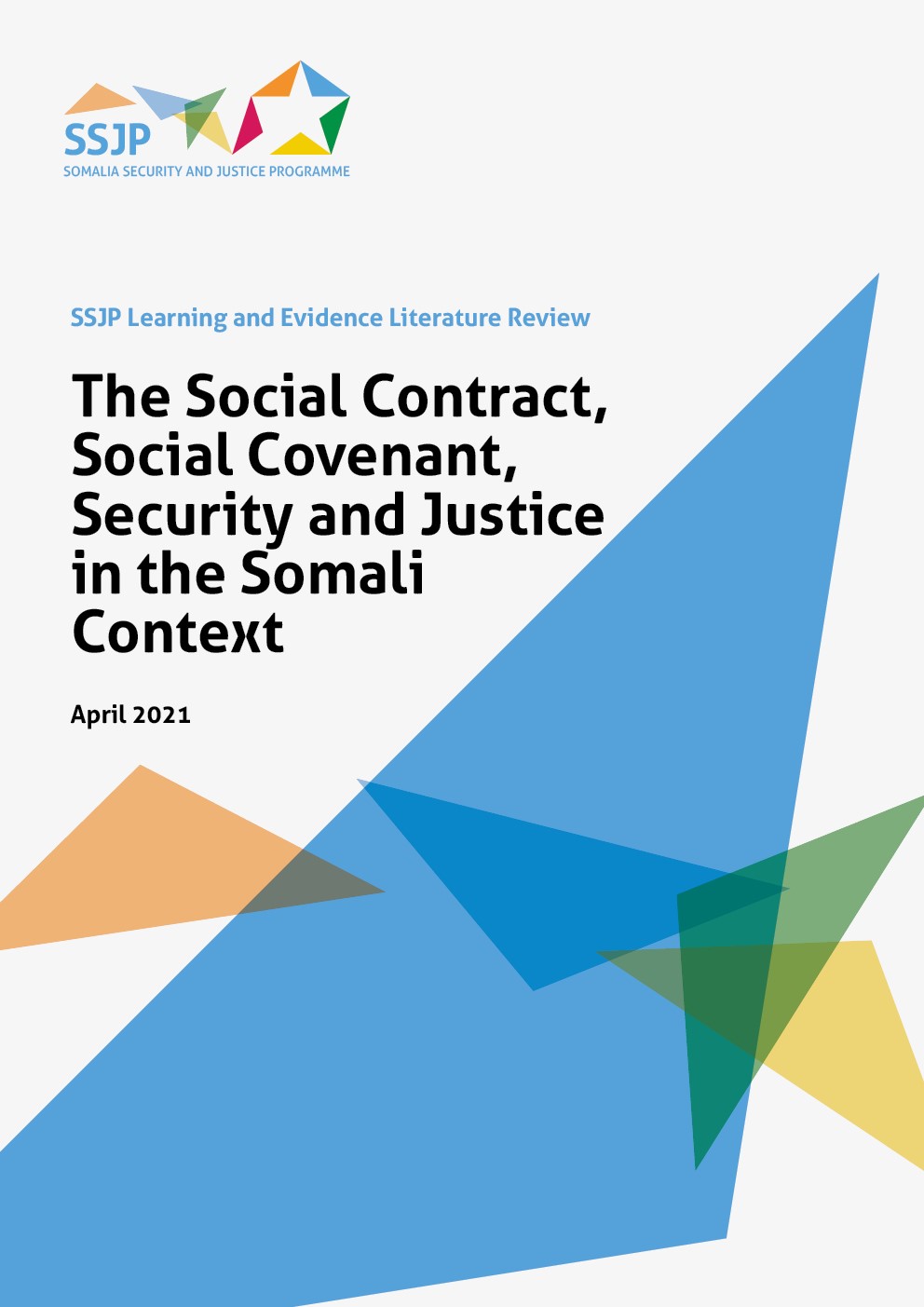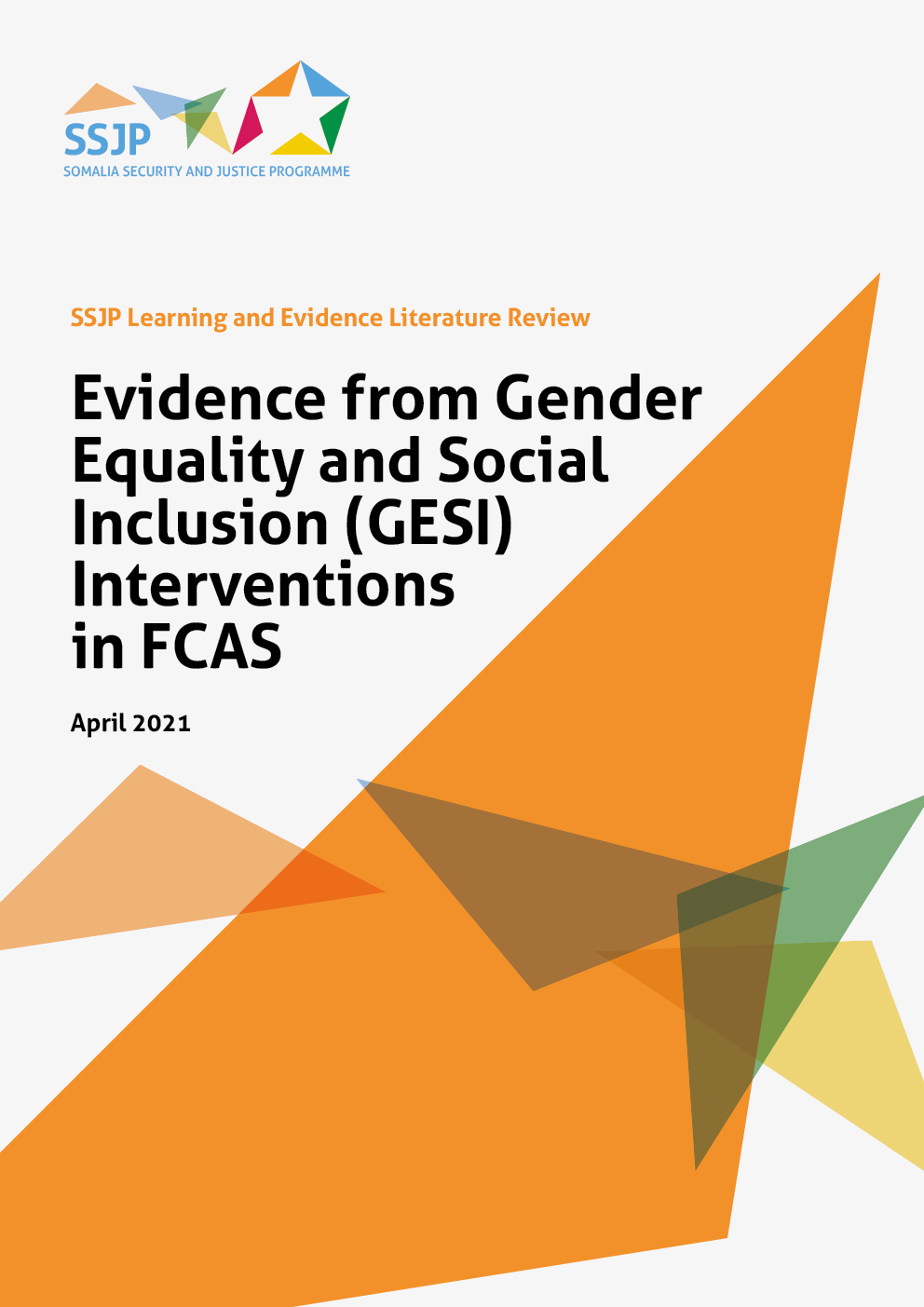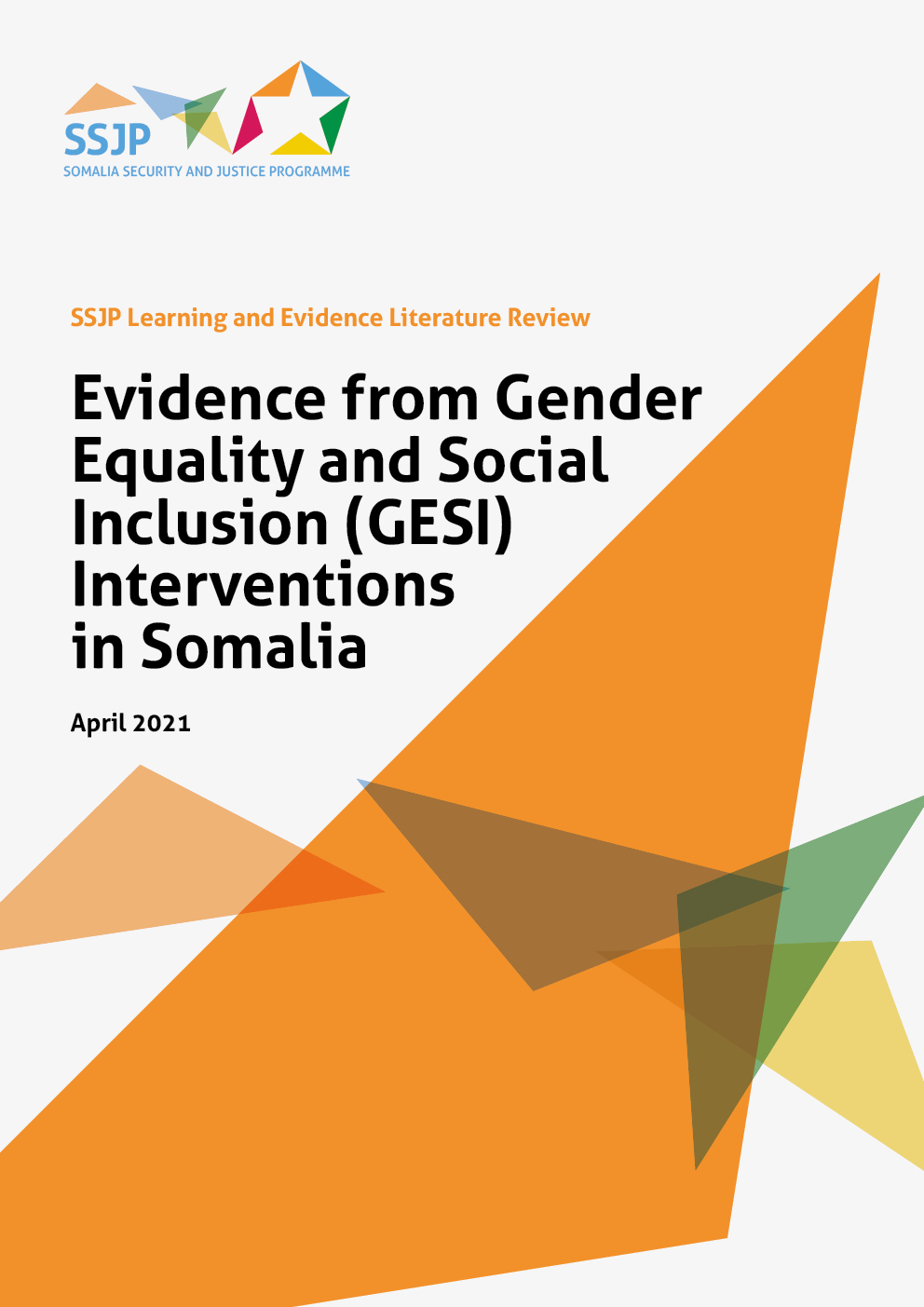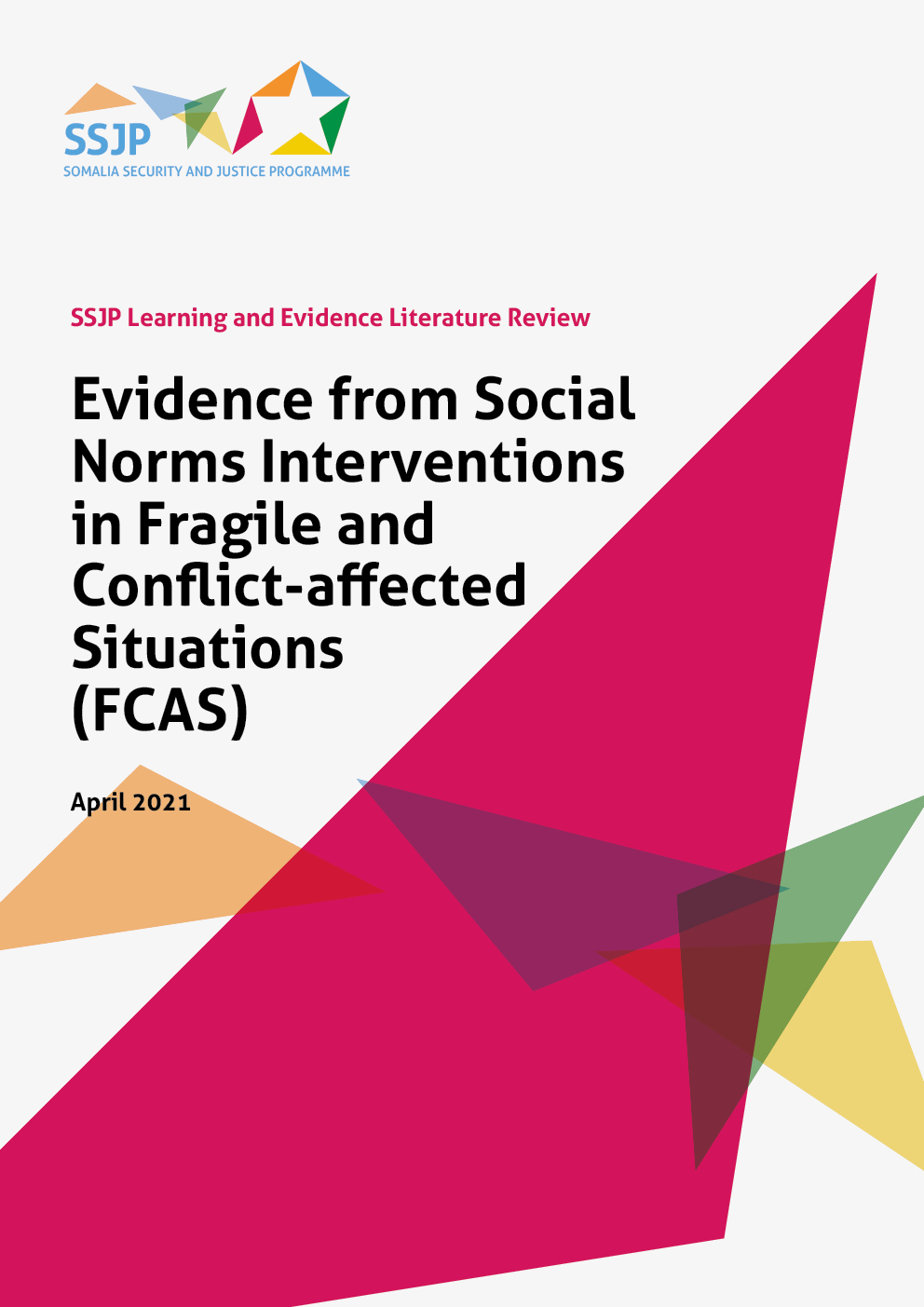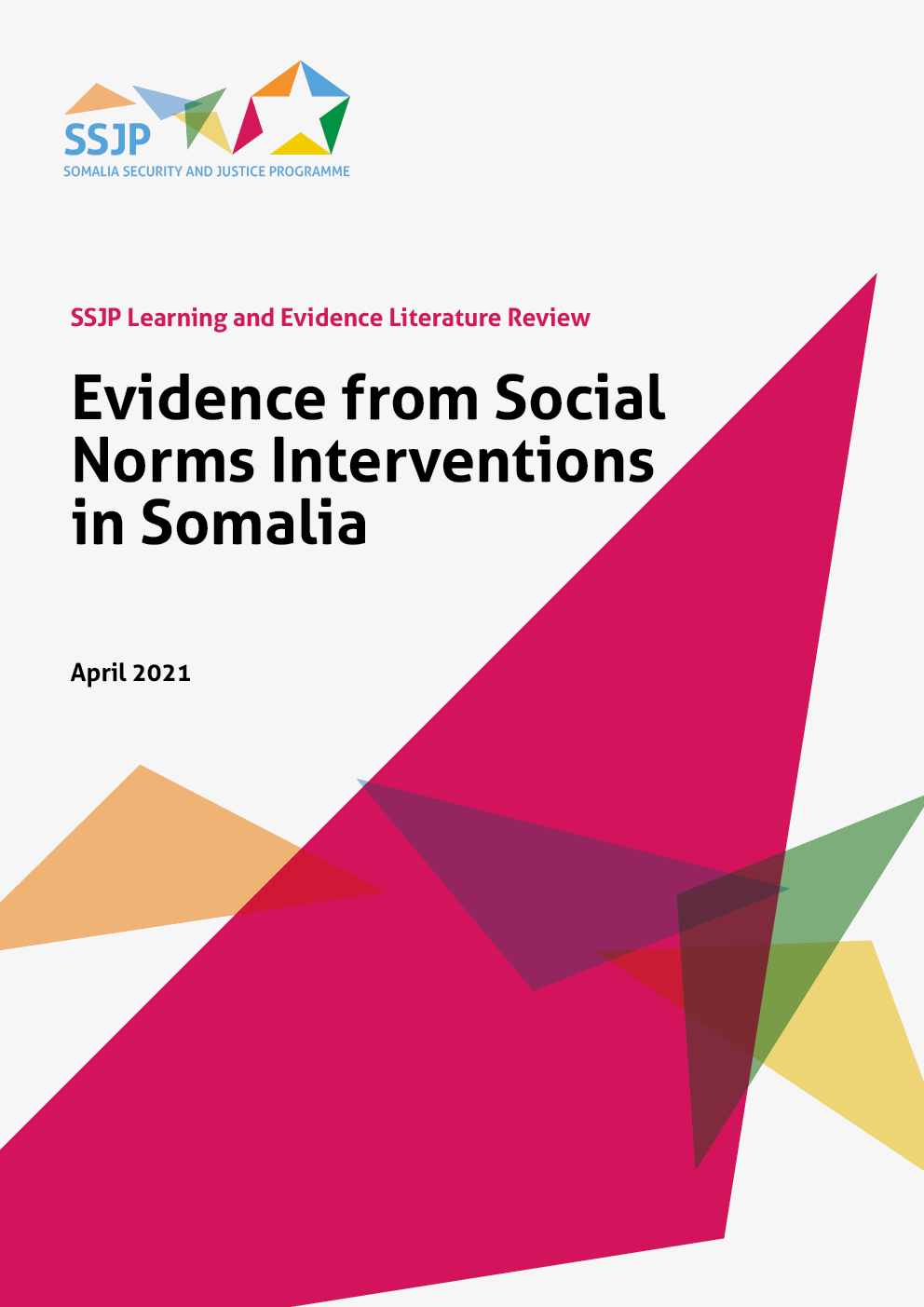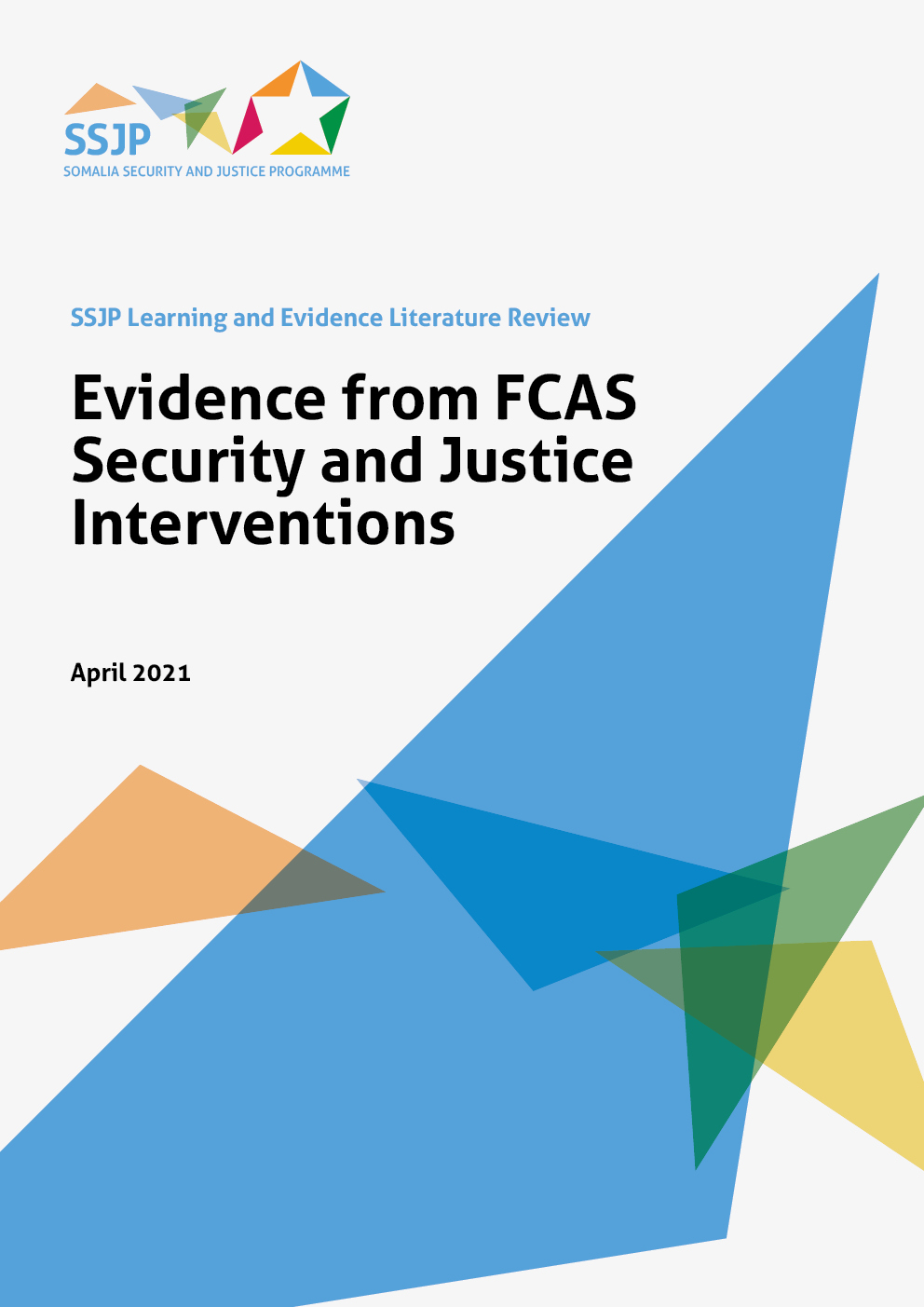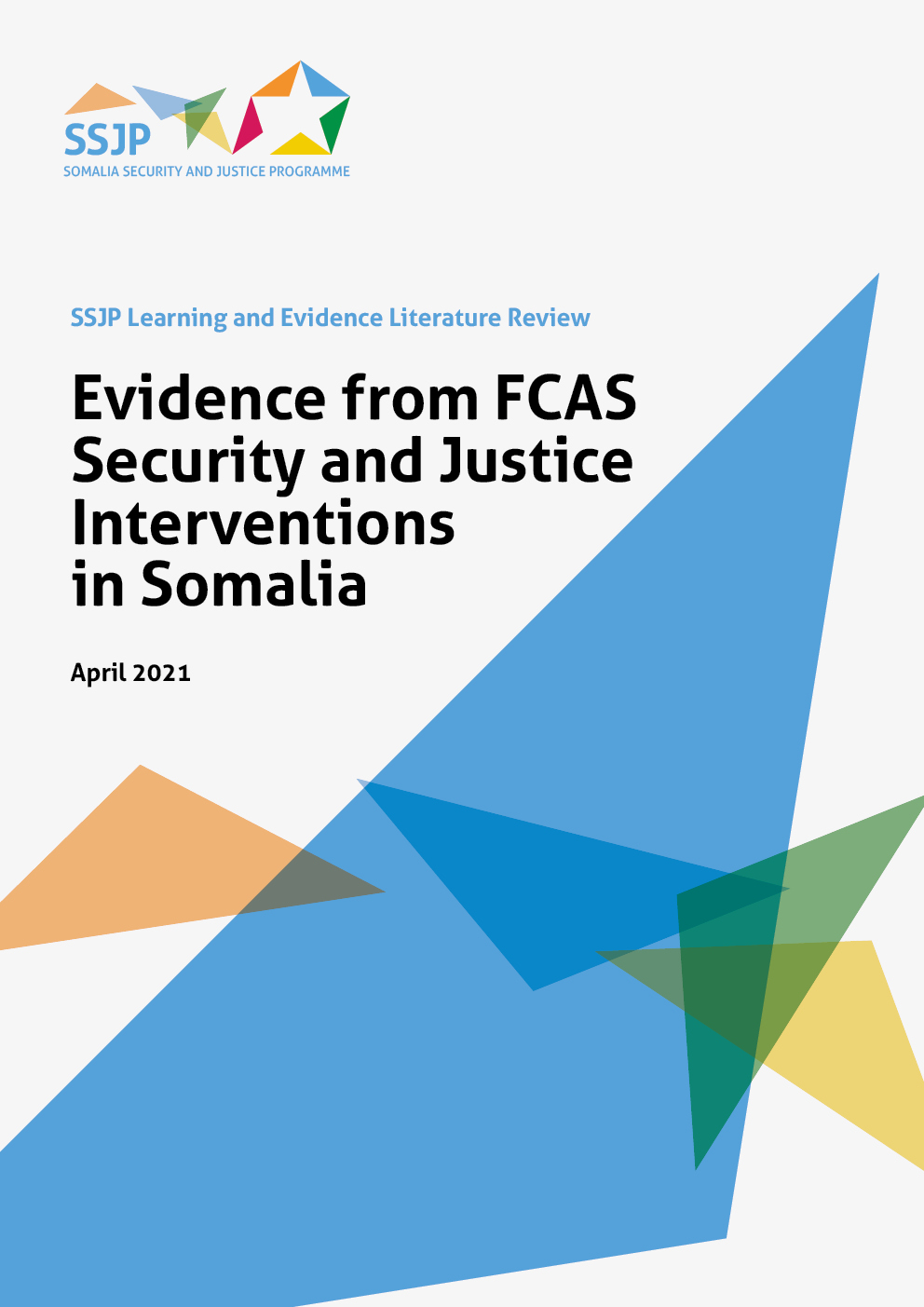From September 2017 to July 2020, DDG implemented The Time is Now: Strengthening Police Accountability and Access to Justice in Somalia programme in South Central Somalia. The programme sought to enable a more community-focused, effective and accountable police architecture in line with the New Police Model, make traditional conflict resolution mechanisms more representative and better aligned with the formal justice …
Time Is Now: Strengthening police accountability and access to justice in Somalia project
This report reflects the results of an evaluation study conducted for Danish Demining Group (DDG) for the UK’s Department for International Development (DFID) funded Time is Now: Strengthening Police Accountability and Access to Justice in Somalia project. The programme was implemented in 10 districts in Hirshabelle state, Jubaland state and South West state in South Central Somalia from September 2017 …
Social norms, violence against women and girls (VAWG) and change in Somalia
Violence against women and girls (VAWG) is a pervasive issue in Somalia, with devastating and diverse consequences. Social norms in Somalia serve to perpetuate VAWG and present barriers to support and justice, but they can also protect. This literature review identifies and explores social norms that relate to VAWG in Somalia, as a component of a larger social norms mapping …
Community-police dialogue and cooperation
Findings from the study into the impact of the first year of the community policing dialogue and cooperation (CPDC) initiative in [where?] between May and July 2019 make an important contribution to broader discussion on police reform in the Somali context. It shows that the initiative has become institutionalised in local governance structure and provides insights into future thinking about …
The Clan System and Customary Justice in Somalia
This brief introduces key terms and the current state of customary justice in the Somali context. Attempts to supplant customary practices with statutory institutions have failed time and again as people have rejected these imposed structures. Xeer is not likely to cede its primacy across Somali communities anytime soon. Nor will it be possible for other institutions to govern without …
Fusing Paradigms: Individual Rights and Customary Justice in Somalia Commentary
Six page commentary from Tanja Chopra on Engagement of Somali Customary Institutions in Justice Programs to establish a knowledge base.
Engaging Somali Customary Institutions (Briefing paper)
Justice sector reform in post-conflict environments depends on a number of steps. Effective conflict resolution must occur, or mechanisms must be in place, to ensure that the prosecution of violations does not result in renewed armed conflict. Courts and police must be disentangled from politics and accountable to communities for them to gain legitimacy and enforce decisions with communal support. …
Fusing Paradigms: Individual Rights and Customary Justice in Somalia (Evaluation Learning Brief)
Justice is a key building block for stabilization in fragile environments. Discontent around access to justice observed in previous security and justice studies of Somalia, and the existence of legal pluralism raise the question: what kind of justice and which justice norms are likely to lead to stability in the Somali context? Limited understanding of legal pluralism in the Somali …
DDG Learning Brief: Gender, Security and Justice in Somalia
A gender-sensitive security sector reform (SSR) approach is necessary because any successful security strategy needs to address the vulnerabilities of all citizens. SSR interventions that use a gender-sensitive approach are more targeted and responsive to people’s need, and thus more effective and sustainable. Moreover, security institutions that listen and respond to the needs of all parts of a community will …
Conceptual overview: Social contract, social covenant, security and justice in the Somali context
This literature review explores Kaplan’s definitions of the ‘social contract’ and the ‘social covenant’. In doing so it finds that there can be both horizontal and vertical aspects of to the notion of the ‘social contract’ but that the ‘social covenant’ is not fully applicable in the Somali context. Somali society is horizontal in nature, with all men considered equal. …
Evidence from gender equality and social inclusion (GESI) interventions in FCAS
Global literature on gender, equality and social inclusion (GESI) in the context of security and justice is heavily skewed towards interventions aimed at increasing access to justice and security specifically for women rather than for groups who are marginalised and particularly on access to justice for gender-based violence (GBV). There is no strong evidence in the literature that has been …
Evidence from gender equality and social inclusion (GESI) interventions in Somalia
Literature suggests that issues of gender, equality, and social inclusion (GESI) and the challenges women and those from marginalised groups face in the context of security and justice in Somalia are interlinked and often mutually reinforcing. Overall, the evidence base is limited and what does exist is weighted towards broad strategies that have had a positive impact across different types …
Evidence from social norms interventions in FCAS
Literature on social norms relating to security and justice in FCAS contexts (including Burundi, DRC, South Sudan and Yemen amongst others) is limited, with only nine studies identified. Norms – with varying degrees of influence (using the theory of normative spectrum reference) identified in the studies reviewed to fall into a few categories: Norms influencing corrupt conduct of government officials; …
Evidence from social norms interventions in Somalia
Literature on social norms relating to security and justice in Somalia is very limited – unsurprising given the emergent nature of the social norms field globally and in Somalia. Of the 15 identified studies that contained a focus on social norms relating to security and justice in Somalia, most did not explicitly seek to identify social norms. The overwhelming majority …
Evidence from security and justice interventions in FCAS
Evidence on what works in security and justice programming globally is limited and mixed. Most of the literature focuses primarily on the effectiveness of outputs, with very little focused on longer-term, indirect, or less tangible results. Findings from the literature review include: The 10 studies focusing on capacity building interventions showed primarily individual or short-term approaches and outcomes. Limited evidence …
Evidence from security and justice interventions in Somalia
There is limited evidence for what works in security and justice programming in Somalia and what does exist is generally of medium or low quality. Interventions showing some effectiveness can be considered promising, but limitations relate to the small scale of the programming, limited sustainability, and significant resistance. There are few independent studies exploring the effect of donor interventions in …

